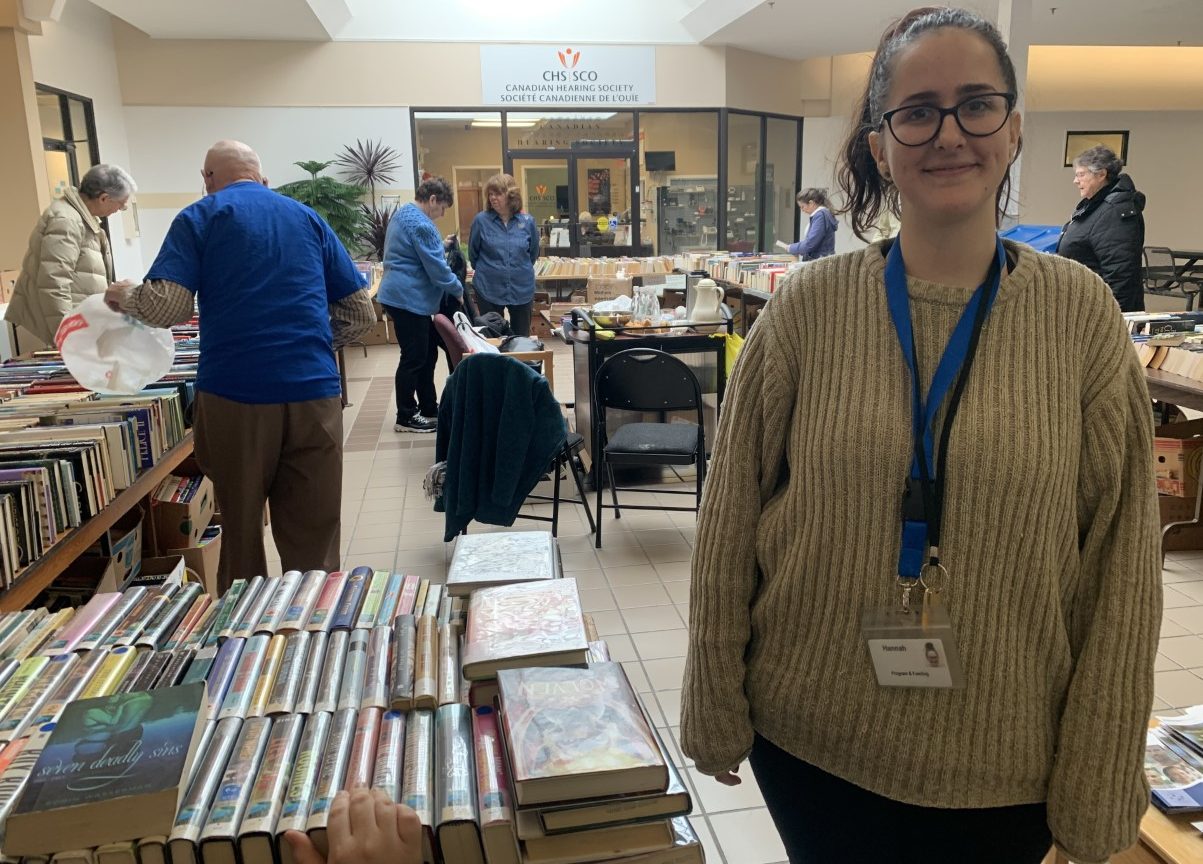Quinte-area Alzheimer Society raises over $3,500 in book sale

At full price hardcover books are sold for $4 each and softcovers are $3. Organizers also reduce the price as the week progresses and on the final day customers could fill a bag with the remaining books for only $5. Photo by Graham Whittaker, QNet News
BELLEVILLE – The Alzheimer Society of Hastings and Prince Edward counties raised over $3,500 after the first of three annual used book sales held on Thursday.
The three book sales collectively are the source of 10 per cent of the organization’s annual funding. In total, donations make up 60 per cent of the society’s total funding, making the book sales a crucial portion of the group’s resources.
Hannah Foxall, the Alzheimer Society’s program co-ordinator, oversees these fundraisers and she says that they are crucial if the organization is going to have the resources it needs.
“Between the three book sales, $12,000 approximately is raised each year. It’s about 10 per cent (of our total funding), so it’s definitely worth it.”
The sale ran in the Bay View Mall and ended at 4 p.m. on Thursday.
The event is largely run by volunteers, who sort and sell the books, so all of the money raised goes toward serving the local community, she said.
“The funds that are generated from the book sale all stays local,” she said. “It helps us keep our doors open in terms of support groups and education sessions that we do around the area, (which) goes from Picton all the way to Bancroft.”
The book sales always take place during the first week of February, in June and in November. Last year the Alzheimer Society also hosted a $1 Christmas sale to unload a surplus of used books, and the organization plans on doing the same this year, she said.
Donations of used books are accepted year-round, if they are in good condition. However, if they are in rough shape they are either re-donated or recycled.
The organization serves the community by providing support to families and patients, along with education about Alzheimer’s and dementia. It also serve as a way for patients to seek treatment through their connections throughout the community.
Alzheimer’s is a progressive disease that affects the parts of the brain which deal with memory and thinking. Symptoms tend to present themselves in someone’s mid-60s and the effects of the disease are irreversible.
 Print This Post
Print This Post






